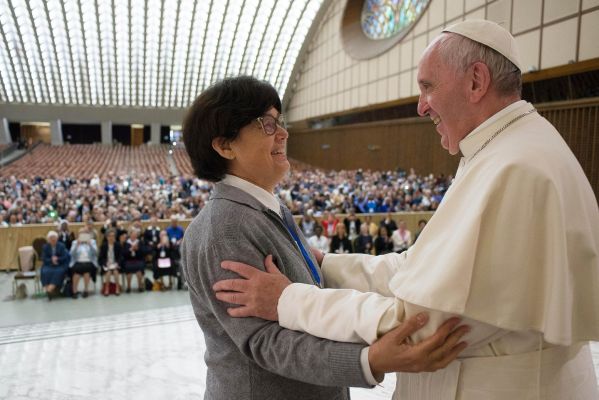-
Tips for becoming a good boxer - November 6, 2020
-
7 expert tips for making your hens night a memorable one - November 6, 2020
-
5 reasons to host your Christmas party on a cruise boat - November 6, 2020
-
What to do when you’re charged with a crime - November 6, 2020
-
Should you get one or multiple dogs? Here’s all you need to know - November 3, 2020
-
A Guide: How to Build Your Very Own Magic Mirror - February 14, 2019
-
Our Top Inspirational Baseball Stars - November 24, 2018
-
Five Tech Tools That Will Help You Turn Your Blog into a Business - November 24, 2018
-
How to Indulge on Vacation without Expanding Your Waist - November 9, 2018
-
5 Strategies for Businesses to Appeal to Today’s Increasingly Mobile-Crazed Customers - November 9, 2018
Deaconesses in the Catholic church? Could be
The Italian newspapers led today with Pope Francis’s remarks about women deacons – which have also been covered in Time (“Pope Francis… signalling the possibility of letting women serve in ordained ministry”); the Daily Mail (“the Vatican stressed decision to allow women deacons would not lead to the ordination of female priests”); and the Washington Post (“a dramatic statement which left unclear what tangible changes Francis is open to making”), and in a host of global news sources.
Advertisement
During an audience with more than 900 leaders of women’s religious orders, the International Union of Superiors General, the pope engaged the nuns in a question-and-answer session.
Deacons are ordained ministers but not priests, though they can perform numerous same functions as priests: preside at weddings, baptisms and funerals, and preach. In actual fact, the Pope made clear in his preaching during the course of the Eucharistic celebration that he was not considering this (question) at all.
Currently, with a few exceptions, the Latin Rite of church allows married men to be deacons but not priests. The pope merely agreed that it would be a good idea to create a commission to study the historical roots of having female deacons – particularly whether or not those deaconesses were ordained, as the church’s male deacons are in modern times – and how they could apply to the present-day church.
The late Pope John Paul II in 1994 definitively declared that “the church has no authority whatsoever to confer priestly ordination on women” but did not make a similar statement on women deacons.
During a 75-minute conversation, the Pope was asked if he would be willing to create a commission to study into whether women could serve as deacons. Is Archbishop Durocher right in pushing gently for women in the diaconate, or is it just as impossible as women’s ordination to the priesthood? He said he once asked a professor to educate him on the role of those early female deacons – including whether they were ordained.
The Catholic Church had deacons in its early centuries, assisting bishops and priests in their ministries. There are about 13,000 deacons in the United States, according to the U.S. Conference of Catholic Bishops. When he gave a long interview in September 2013 to Fr. Antonio Spadaro, director of Jesuit periodical La Civiltà cattolica, he dedicated nearly a page to the role of women in the Church, stressing that “more space should be given to women”.
The Pope acted abruptly a year ago to end a Vatican crackdown, begun under his predecessor Pope Benedict XVI, on the Leadership Conference of Women Religious, the largest organization of American religions.
Local Catholics backed allowing women to be deacons. It would seem to open the way for the prospect of women priests, as in the Protestant religion, and provided an answer to nuns, like the one yesterday, who wonder why women are excluded from the diaconate. They are barred from giving communion or taking confessions. He responded, “I accept; it would be useful for the church to clarify this question”.
“Pope Francis will want to dig into the tradition and ask, ‘Why did we do this?'” Reese said.
Deacon Greg Kandra, a traditional and popular blogger, on Thursday cited that 2002 document, which said “deaconesses mentioned in the tradition of the ancient Church – as evidenced by the rite of institution and the functions they exercised – were not purely and simply equivalent to the deacons”. To date, Francis has praised the “feminine genius” but has not carried through on vague promises to appoint more women to leadership positions. “We live in a society where the difference between men and women is being denied on a lot of fronts”. Now Pope Francis has signaled willingness to consider that long-simmering question, potentially leading to a historic opening – or reopening – to women in the pulpit, at the baptismal font, and in other ministries. “This is news of enormous joy for the Church”.
Advertisement
“I’m delighted that he is interested in considering the matter”, said Phyllis Zagano, senior research associate-in-residence at Hofstra University and a longtime proponent of women deacons.





























